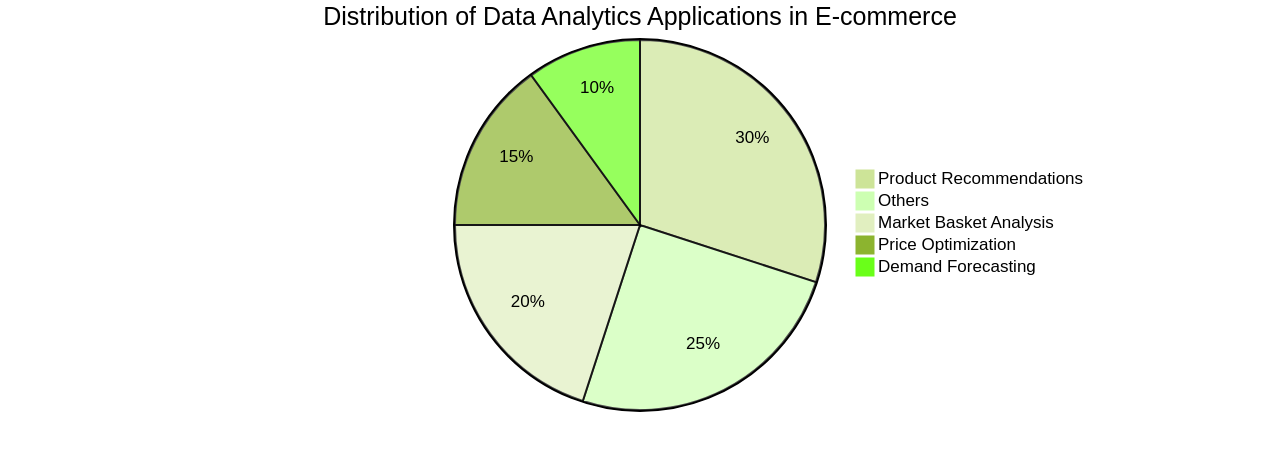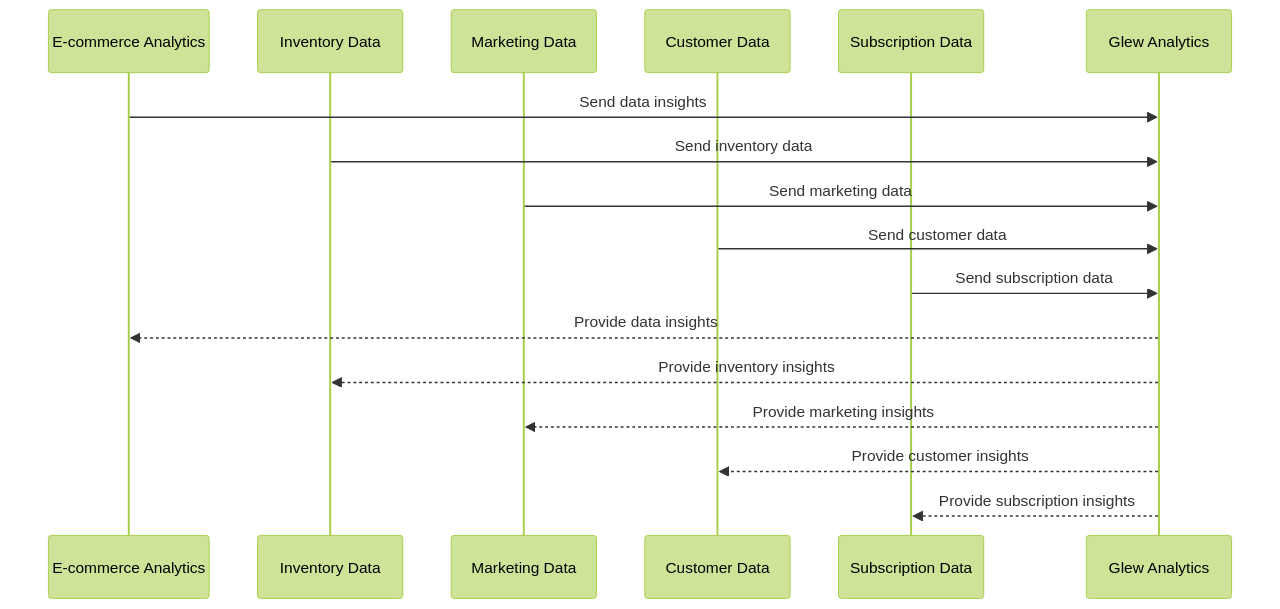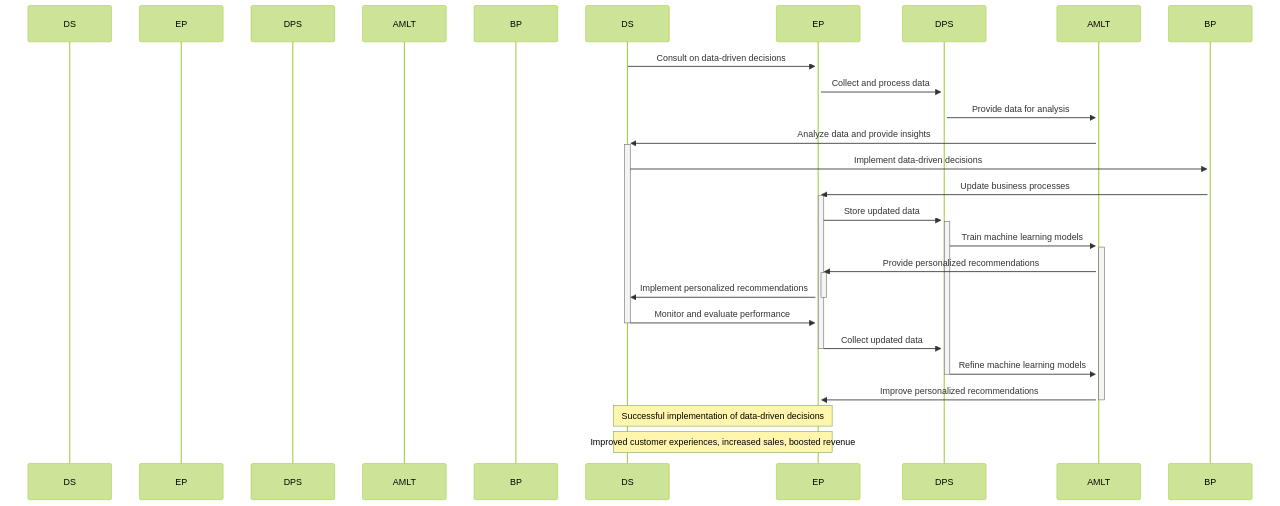Introduction
In the dynamic world of e-commerce, data science consulting plays a crucial role in driving growth and success. Data scientists leverage their expertise in data interpretation and analysis to provide businesses with valuable insights into customer behaviors, market trends, and future patterns. By harnessing these insights, businesses can tailor their offerings, optimize marketing strategies, and gain a competitive edge in the trillion-dollar e-commerce industry.
In this article, we will explore the impact of data science consulting on e-commerce operations. We will delve into the importance of data-driven decision-making, the challenges in implementing it, and real-life case studies that highlight the successful implementation of data-driven strategies. From leveraging data analytics to optimize marketing efforts to utilizing machine learning for personalized customer experiences, we will uncover how data science consulting can transform e-commerce businesses and drive growth and profitability.
1. Understanding the Role of Data Scientist Consulting in E-commerce
In the ever-evolving e-commerce landscape, the application of data analytics is transformative. Data scientists play a pivotal role, leveraging their expertise in data interpretation and analysis to generate business-critical insights. These insights reveal customer behaviors, preferences, and needs, empowering businesses to tailor their offerings and marketing strategies. Additionally, identifying market trends and predicting future patterns can offer a competitive edge.
The explosive growth of e-commerce, especially during periods like the COVID-19 lockdown, underscores the importance of data analytics. Consider the rise in US retail e-commerce sales, which escalated from $160.4 billion in the first quarter to $211.5 billion in the second quarter of 2020. The projection of this growth surpassing $1 trillion by 2024, accounting for 18.1% of total retail sales, further highlights the significance of data analytics.

Data analytics can be employed in numerous ways within e-commerce. Product recommendations based on algorithms, for instance, account for 35% of Amazon's sales. Such data-driven recommendations can boost sales significantly. Market basket analysis, another technique, identifies associations between products frequently bought together, optimizing product placements and promotions.

Further applications of data analytics include price optimization and demand forecasting. The former involves setting optimal prices to strike a balance between customer satisfaction and the firm's profit. The latter leverages analytics techniques to predict product demand and forecast sales, leading to improved inventory management, cashflow management, pricing strategy, and customer service.
Companies like BestToolbars.net offer consultation services to e-commerce businesses, providing innovative and tailored solutions.
Contact BestToolbars.net for innovative and tailored solutions to boost your e-commerce business.
Their team of experts assists with market testing, product development, bug fixes, and even full outsourcing. They also offer integrated solutions like quick proof of concept and initial project research. Data visualization techniques, predictive analytics, machine learning, and data mining techniques are used to uncover valuable insights, optimize operations, and drive growth.
In conclusion, the impact of data scientist consulting in e-commerce is transformative. Leveraging data analytics can provide businesses with a competitive edge, enabling them to make data-driven decisions and achieve significant growth and success.
2. The Importance of Data-Driven Decision Making in E-commerce
In the fiercely competitive e-commerce world, the significance of data is paramount. It fuels strategic planning, operational enhancement, and the creation of customer experiences. To anticipate market dynamics, comprehend customer behaviors and preferences, and make informed strategic decisions, businesses must harness data insights.
One such platform that epitomizes data-driven decision-making is Glew. This comprehensive analytics solution provides brands, merchants, and agencies with the necessary tools to effectively scale their operations. Glew boasts a broad suite of analytics encompassing e-commerce, inventory, product, marketing, customer, and subscription analytics. Furthermore, it incorporates alerts, automation, scheduled reports, and daily snapshots, making it the go-to solution for all data-related requirements.
For instance, Oatly, an e-commerce business, leverages Glew to delve deeper into their data, equipping them with the insights needed to scale their operations.
Data-driven decision-making fundamentally revolves around understanding what data to collect, how to analyze it for insights, and how to make strategic decisions based on these insights. Metrics such as total sales, average daily sales, year-over-year growth, sales growth rate, repeat purchase rate, net profit, gross profit, conversion rate, average order value, and customer lifetime value are all crucial in this process.

The implementation of a data-driven approach is a continuous process that necessitates regular analysis and evaluation of metrics. It entails understanding business objectives, connecting data sources, analyzing data, and utilizing insights to guide strategic decisions. With Glew, businesses can accomplish all this and more, optimizing their growth strategies and maximizing profitability.
As Raphaël Menesclou astutely observed, "Data is at the crux of development for any business, e-commerce or not." In a rapidly expanding trillion-dollar industry powered by data, targeted ads, and customer experiences, data-driven solutions are not just desirable, they are indispensable.
3. How Data Scientist Consulting Facilitates Effective Digital Marketing Strategies
Machine learning technology's integration into digital marketing practices has been a transformative force within the e-commerce sector. This breakthrough has been particularly beneficial for smaller enterprises that can swiftly adapt to technological advancements. Machine learning provides improved attribution analysis, enabling organizations to determine the true impact of various marketing channels and gain a competitive advantage.
For instance, Spin Sucks, a publisher, utilized machine learning and marketing analytics to identify the key drivers of their business outcomes. This understanding allowed them to develop an editorial calendar for maximum effect. Businesses can formulate personalized marketing strategies that align with their target audience's behaviors and preferences by leveraging insights gleaned from customer data analysis.
Predictive analytics and machine learning can also aid in forecasting probable outcomes, assisting businesses in optimizing their marketing expenditure and enhancing their return on investment. For example, Hilton, a well-known international hospitality firm, employed data-driven marketing to design a highly personalized email campaign, resulting in significant improvements in open and click-through rates, as well as conversion rates. This case study highlights the transformative potential of machine learning in digital marketing strategies.
Additionally, integrating machine learning into digital marketing strategies can yield insights into customer engagement and conversion rates. These insights can guide future marketing campaigns and initiatives, ensuring that businesses continually adapt and refine their strategies. In the fast-paced world of e-commerce, machine learning provides an unparalleled level of precision and subtlety, enabling businesses to remain at the forefront.
The key to enhancing marketing efficiency through data analysis in e-commerce is to leverage the expertise of software developers, designers, and engineers. A harmonious collaboration among these professionals can lead to innovative solutions tailored to address specific needs and questions related to marketing strategies. Consulting with field experts can yield valuable insights and recommendations on optimizing marketing efforts.
Additionally, access to top-tier contracting talent can expedite development and testing processes, allowing for swift proof of concept, initial project research, bug fixes, and market alignment. Integrating these contractors with the existing team can result in a flexible and cost-effective approach to data analysis and marketing in e-commerce.
In summary, by employing data analysis techniques and collaborating with experts, e-commerce businesses can enhance their marketing efficiency and make data-driven decisions to drive growth and success.
4. Case Study: Successful Implementation of Data-Driven Decisions Through Data Scientist Consulting
The power of data science in e-commerce can be seen in the success stories of companies such as Zappos, an online apparel retailer, and Millésima, a specialty wine retailer. Zappos has harnessed data science to refine its customer experience significantly. They have utilized Amazon Web Services (AWS) for analytics and machine learning to deliver personalized recommendations and increase search relevance for their customers. The company’s use of various AWS services for data processing and storage has greatly improved their operations.

Similarly, Millésima has reaped the benefits of data science by using the Marigold Engage platform to boost repeat orders and increase sales frequency and average purchase value. They centralized and streamlined their data sources, automated marketing workflows with AI, and brought all channels into a single journey.
These companies' data-driven decision-making, facilitated by data science consulting, has significantly enhanced their e-commerce operations. By using data to identify patterns and trends, predict customer behavior, and optimize business processes, these companies have improved customer engagement, increased sales, and boosted revenue.
For instance, customer segmentation, enabled by data analysis, allows businesses to tailor their marketing messages and offers to each specific group, increasing the likelihood of engagement and conversion. Moreover, by tracking and analyzing customer behavior and interactions, businesses can gain insights into their needs and preferences, enabling them to create highly targeted and personalized marketing campaigns.
Additionally, adopting best practices in data-driven decision-making in e-commerce is essential. These include establishing clear objectives and key performance indicators (KPIs), investing in the right tools and technologies for data gathering and analysis, regularly monitoring and evaluating e-commerce initiatives, and fostering a culture of data-driven decision-making within the organization.
In essence, the integration of data science and its techniques into e-commerce operations can lead to improved customer experiences, personalized marketing strategies, and enhanced operational efficiency.
5. Challenges in Implementing Data-Driven Decision Making and How to Overcome Them
As we delve into the digital era, the role of data science in e-commerce is becoming increasingly critical. Data science consulting can be a game-changer for e-commerce businesses, providing them with the analytical tools needed to navigate through vast amounts of data.
One notable example is the collaboration between MercadoLibre, Latin America's largest online retailer, and Tryolabs, a top-tier machine learning and data science consulting firm. Their partnership aimed at optimizing product categorization and extending category trees. The solution was an iterative approach based on specific goals and supervised learning techniques. This successful collaboration led to enhanced item findability and increased conversion rates.
Similarly, Mecca, a leading beauty retailer in Australia and New Zealand, embarked on a data transformation journey with Amazon Web Services (AWS) and Servian. Their objective was to deliver highly personalized experiences to their customers. They efficiently cleansed and restructured 23 years' worth of data, resulting in an organized and accessible data system. Using Amazon Personalize, they generated 10 million product recommendations every week, leading to a significant boost in customer engagement and conversion rates.
Another example is Besttoolbars, a team of software developers, designers, and engineers who offer consulting services for a variety of needs, including data-driven decision making. The team provides one-on-one consultations, crafting innovative solutions tailored to the clients' requirements. Their services range from market testing and MVP product launch to bug fixes and market alignment. By providing access to top-tier talent and offering flexible demand contractors, they can expedite development and test hypotheses.
These case studies underscore the potential of data science consulting in addressing the challenges associated with data-driven decision making in e-commerce. By leveraging the expertise of these professionals, e-commerce businesses can enhance their decision-making process and unlock a multitude of benefits associated with data-driven strategies.
Conclusion
Data science consulting has a transformative impact on e-commerce operations by leveraging data analytics to drive growth and success. The application of data interpretation and analysis by data scientists provides businesses with valuable insights into customer behaviors, market trends, and future patterns. By harnessing these insights, businesses can tailor their offerings, optimize marketing strategies, and gain a competitive edge in the trillion-dollar e-commerce industry.
The importance of data-driven decision-making is evident in the explosive growth of e-commerce and the increasing significance of data analytics. The ability to understand customer preferences, predict market trends, and optimize business processes is crucial for businesses to thrive in this dynamic landscape. Successful case studies from companies like Zappos and Millésima demonstrate the power of data-driven decisions in improving customer experiences, increasing sales, and boosting revenue.
To unlock the benefits of data science consulting for e-commerce businesses, it is essential to overcome challenges such as handling vast amounts of data and implementing effective data-driven strategies. Collaborating with top-tier machine learning and data science consulting firms can provide businesses with the expertise and tools needed to navigate through complex data sets. By investing in the right technologies, establishing clear objectives and KPIs, and fostering a culture of data-driven decision-making, businesses can optimize their operations and achieve significant growth.
Start now to leverage the power of data science consulting for your e-commerce business and drive growth and profitability.





